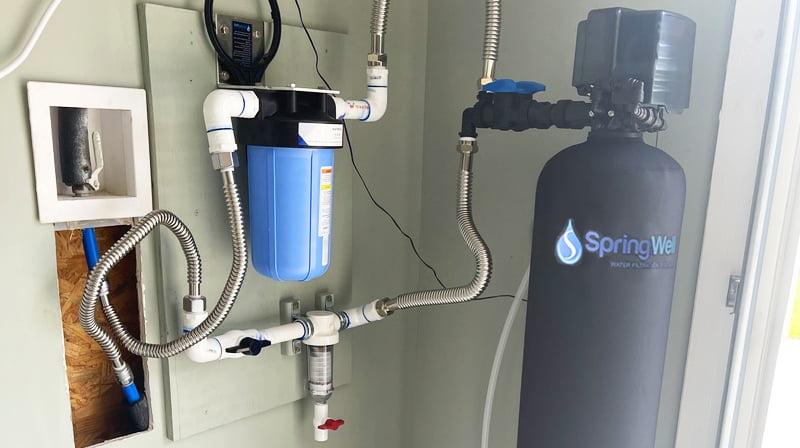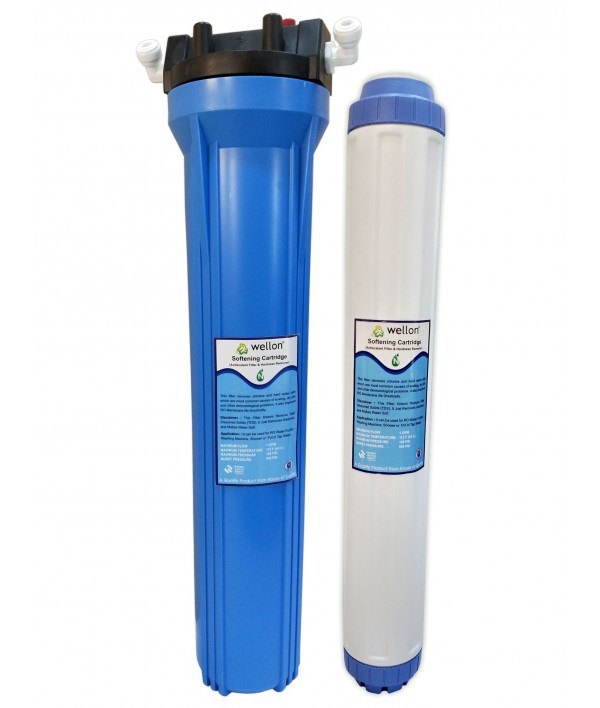Just How do Whole House Water Filters Work?
Just How do Whole House Water Filters Work?
Blog Article
We have encountered this post on What is a Whole House Water Filter and How Does It Work? listed below on the net and concluded it made sense to write about it with you in this article.

Entire home water filters are the best choice for people that have an interest in having a home that provides clean, drinkable water. Along with giving top quality drinking water throughout your home, a whole house water filter also gives advantages such as getting rid of pollutants that trigger finding in water that is used to clean recipes. Unfiltered water can likewise trigger problem such as corroding pipes as well as home appliances, messing up clothing that is cleaned and also discolor sinks or showers. Although whole house water filters are generally utilized in domestic homes, they can additionally be an efficient alternative for apartment or condos or offices.
At first, it might seem that whole home water filters would be exceptionally costly when compared to various other filter choices, however they are actually a really economical option for water filtering. The price series of these water filters is big, starting at 2 hundred dollars and setting you back as long as one thousand dollars. The rate of the filters is dependent upon their size, product and lifetime. This may feel like a very high cost, but when compared to various other filter options, it is in fact extremely budget-friendly because of the quantity of filtering that it provides.
Entire home water filters purify water in the very same fashion that other filters, such as kitchen counter or under sink filters, do. The difference is that it requires just one filter, which is connected to the major water resource, instead of requiring several water filters to be attached to different tools. As with the other filters, entire house water filters cleanse faucet water by forcing it with numerous different stages of purification. Among the stages is carbon filtration. Carbon is an efficient approach of filtering water since it is permeable and has the capability to get rid of tiny and big contaminations. Carbon is essential in eliminating unpredictable organic carbon compounds, which sometimes can create serious damage to the liver, kidney or central nerves. Carbon additionally removes harmful compounds such as chemicals, commercial solvents and insecticides.
One more crucial step of the purification process involves a procedure such as ionization or micron purification. This action removes numerous contaminants discovered in faucet water, and transforms the water to terrific tasting, healthy and balanced drinking water. As pointed out previously, the major benefit of whole home water filters are that they supply filtered water throughout your house with the use of only one filter.
One more benefit of entire home water filters is the long life expectancy that they use. Much of these filters last in between fifty and one hundred thousand gallons of water. For numerous, the major negative aspect of entire house filters is the higher than average rate. Although these filters are really cost effective, they do require a big investment in advance. Whole home water filters can likewise need a substantial quantity job to mount.
THE IMPORTANCE OF WATER FILTRATION
Water is such an essential part of our daily lives that many times we don’t stop to consider where it’s being sourced or the quality of it. We assume we’re receiving the best possible output. For many, tap water is deemed undrinkable, which is where filtered water comes into play. The importance of water filtration is that it gives people access to clean water that is free of contaminants, that tastes good, and is a reliable source of hydration. Without it, there’s the risk of becoming ill from contaminated water or the alternative of drinking other beverages that may not be as good for your health as purified water.
There are different types of filtered water but all offer the basics of the water purification process. This involves water that has been strained of harmful chemicals, pesticides, bacteria, and other particles that contaminate the water. Although public water systems have filtration protocols in place, these vary from state to state. It depends on where your water supply is sourced from originally, the way it is treated, and the quality of water pipes. For example, older water filtration systems that use lead pipes may be harmful to the final dispersal of water because of lead leaching from the pipes into the water.
FILTERED WATER SOLUTIONS THAT REMOVE CONTAMINATION AND IMPURITIES
Fortunately, there are several ways people can get filtered water. A water filter has microscopic holes that remove sediment and pollutants from the water. The smaller the holes, the less it allows to pass through and the cleaner the water is. The way each type of water filtration system works is slightly different. The most common options are bottled water, at-home filters, reverse osmosis units, and alkaline water.
BOTTLED WATER
Billions of gallons of bottled water are sold yearly as demand for it continues to increase. Although perceived as an inexpensive, convenient filtered water option, it is more costly in the long run than other filtered water choices. The price of bottled water is nearly 2,000 times the cost of tap water and has vastly increased the amount of plastic waste affecting our environment.
FILTER FAUCET ATTACHMENTS AND PITCHERS
These types of filters are easily obtained and are effective in improving the taste of tap water. They help to reduce lead and solids by using a filter screen to capture small particles. In some cases, these types of filtration solutions use a block of activated carbon that helps to remove unpleasant odors and tastes that might be present in your water.
When using either of these at-home options, it’s important to change the filter on a regularly scheduled basis. Failure to do so causes build up in the filters and the water that passes through may not be as clean as desired. Also, when it comes to the availability of filtered water using pitchers, they constantly need to be refilled and there is a period of waiting time until purified drinking water is available again. This is an inconvenience when using in larger households or in organizations where a large group of people is relying on a consistent source of filtered water.
https://home.drinkflowater.com/blogs/posts/the-importance-of-water-filtration

We are very occupied with What are the Benefits of Using a Whole House Water and I'm hoping you appreciated my blog post. If you appreciated our article if you please don't forget to share it. Thank you so much for going through it.
Suggested Site
Report this page